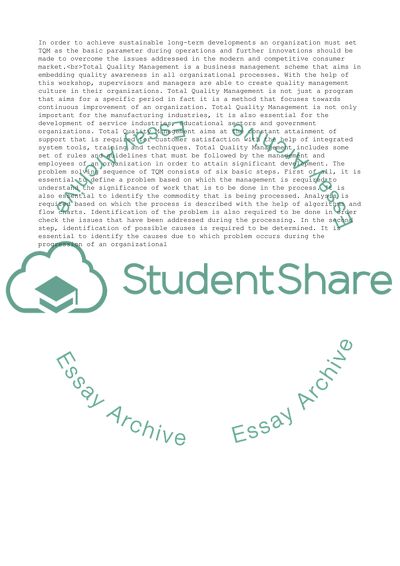Cite this document
(TQM Assignment Example | Topics and Well Written Essays - 1750 words, n.d.)
TQM Assignment Example | Topics and Well Written Essays - 1750 words. https://studentshare.org/management/1851176-tqm
TQM Assignment Example | Topics and Well Written Essays - 1750 words. https://studentshare.org/management/1851176-tqm
(TQM Assignment Example | Topics and Well Written Essays - 1750 Words)
TQM Assignment Example | Topics and Well Written Essays - 1750 Words. https://studentshare.org/management/1851176-tqm.
TQM Assignment Example | Topics and Well Written Essays - 1750 Words. https://studentshare.org/management/1851176-tqm.
“TQM Assignment Example | Topics and Well Written Essays - 1750 Words”. https://studentshare.org/management/1851176-tqm.


